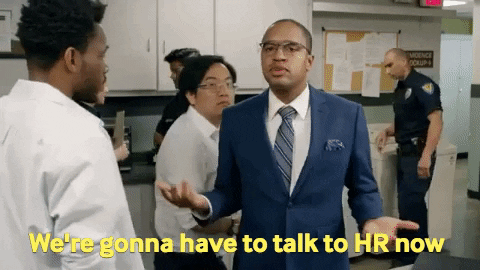What will DAOs mean for HR?
Decentralized Autonomous Organisations might be the future.
Hello to all FullStack HR subscribers! I still get an email every time someone joins the FullStack HR community and that’s always a happy moment! If you haven’t yet subscribed - join in!
It’s Thursday folks! 😄
Listen to the episode on Spotify or Apple Podcast.
Before you start scratching your head, no, I haven't suddenly become philosophical or religious. We're not going to talk about Dao as in the Chinese philosophy, but DAOs as in Decentralized Autonomous Organisations.
And a big, fat, disclaimer before we start: my aim with this article is not to say, "If you don't jump on the DAO-train, your organization will be hopelessly after and will never hire or retain a single person."
DAOs are still in the exploratory phase. For most organizations, it's probably not worth even considering them for at least ten years, if even at all.
I write this early because I know myself. I like new shiny things, and I can quickly get a bit over-excited about stuff like this…
So why am I writing about this at all?
Because it's happening fast and at scale.
Let's break it down from the top.
What the f*ck is a DAO?
A DAO is a computer program with pre-defined rules for specific actions, called smart contracts. Smart contracts run on a blockchain, such as ethereum. They are the backbone of DAOs; much like the middle manager of DAOs - "If you do X, you get Y." The main difference is that they’re not as sketchy and subjective as middle managers usually are.
(Sorry to all the middle managers I've been working with, you are, of course, not sketchy and subjective. I mean OTHER middle managers, not you.)
People participate in a DAO either by being a founding member, thus building and creating the smart contracts; adding value to the DAO - either by improving the DAO or performing tasks for the DAO; or by buying your way into the DAO, much like a stock works.
A DAO also lacks a visionary CEO who talks passionately about how the DAO will disrupt the world, making decisions that no one understands.
Instead, the members of the DAO make decisions through voting.
Everything about the organization and its principles is entirely open and transparent.
So what if someone tries to give themself a pay rise? The smart contract will prevent it from happening! It's written into the code, and the only way to change that is if the DAO’s members vote and agree on the change.
Diving into the deep end of the pool.
I'm going to go out on a limb here and try an example, which I'm pretty sure doesn't exist yet. (Please correct me if I'm wrong here, I'd love to know if this exists.)
Let's just say that we start a recruitment DAO.
The DAO aims to help other organizations to hire people.
A group of developers and recruiters get together, using blockchain, they create a smart contract for the DAO. The agreement stipulates the ins and outs of the organization. It sets clear rules on how to compensate participating people and machines. Sending in candidates to the pool might give you one type of compensation, hiring someone gives another type and figuring out local laws for the contract a third.
But wait. Doesn’t this sound very much like any other recruitment company?
Yes, the tasks and aim might be the same, but it's the underlying principles that differ.
If we choose to, anyone can participate in the DAO. Anyone. As it is open and transparent, you know exactly the terms for your participation. It's almost like a video game, but in this case, the remuneration is cash (or usually bitcoin/ethereum).
And yes, if you are a DAO expert, I'm pretty sure I oversimplified things. Feel free to reach out and tell me what I did wrong so I can learn.
HR and DAO?
I hate to break the bad news, but there is no HR department in DAO.
Now is also the time to remind you about the initial statement - DAOs are still in the super-early face. You won't be out of a job tomorrow.
It offers, however, a glimpse into what might be the future where more organizations run on this type of scheme. Not that I think every organization in the whole wide world will be a DAO, but people will request transparency. It reinforces a trend we've seen primarily in tech companies where there's a demand for transparency.
And if demand for tech people is high and they can choose between working for a DAO, where they have explicit knowledge about how and when they will be rewarded, and working for an organization that provides little or no transparency on that - what will they choose?
So even if DAOs are yet, and probably will be, a thing in the margin, for the time being, it's worth considering the impact it will have on our current organizations. We, as HR people, will need to be even better at pushing our organizations and leaders to offer clarity and transparency.
What counts as good performance? What counts as terrible performance? How do we reward our people? Where are we headed as an organization?
These are by no means something new, but the threshold to join another organization such as a DAO has never been lower. People will and are already, to some extent, already voting with their feet. (In an upcoming article, we will talk more about what's now dubbed The Great Resignation; stay tuned for that.)
How do you push leaders to show transparency?
It's always hard to give universal advice, but one common denominator I've seen across companies that successfully retain talent is that their leaders have open sessions on a regular cadence. This is where they openly and also, to some extent, talk non-scripted about what's on their minds. They encourage discussion and feedback in these sessions. I’m not saying this won't be easy - it takes a toll managing all of these questions that pop up. Some of them are uncomfortable. Some are inappropriate. Still, it builds trust. And don't make it a one-trick pony. Consistency is key.
Nothing new under the sun and not rocket science, but it still requires effort.
Now I'm off to start that recruitment DAO.




